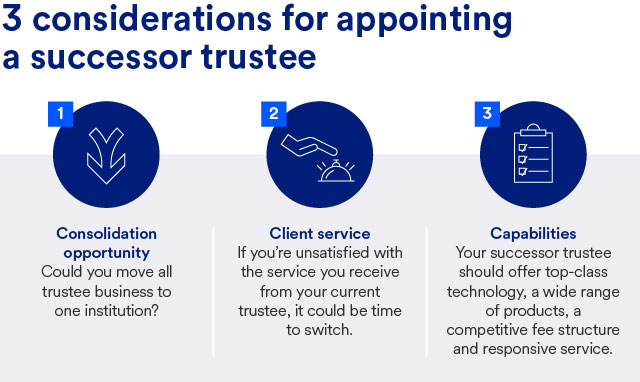
Manufacturing: 6 supply chain optimization strategies

The bond trustee plays a critical role in the issuance of a bond. This institution serves on behalf of bondholders and is responsible for the oversight and administration of the bond issue in accordance with the terms outlined in the trust indenture and governing documents.
The trustee enforces the terms of the bond indenture and protects the bondholder’s interest. This includes ensuring that bond interest and principal payments are made on schedule. The bond trustee has a fiduciary duty to protect the interests of bondholders if the issuer defaults and to ensure that all terms and covenants spelled out in the bond issue are enforced.
But what happens when a bond issuer wants to move all its business to one service provider? This is when a successor trustee can come into play.
A successor trustee can administer an already-issued bond transaction. According to Michelle Knutson, vice president and relationship manager at U.S. Bank Global Corporate Trust, there may be some situations where bond issuers might want to consider appointing a successor trustee to assume duties within operative documents from the existing service provider.
“One of the most common scenarios is when the issuer wants to consolidate all of its business to a single service provider,” says Knutson. “Having one single source contact and payee can make it easier to manage accounts than dealing with separate service providers.”
Another common scenario for appointing a successor trustee is when a bond issuer is receiving less-than-stellar service from its current bond trustee. For example, is the contact person constantly changing? Are phone calls and emails not answered promptly? Are concerns not being addressed to your satisfaction?
Putting in place a successor trustee presents a variety of advantages.
“Appointing a successor trustee can give bond issuers access to multiple product options and state-of-the-art technology built for your business,” says Karen Lei, vice president and relationship manager at U.S. Bank Global Corporate Trust. “A successor trustee may offer an online client portal where issuers can see project fund balances in real time and have access to customized reports, statements, deal documents and more.”
For the best results, it’s important to find a successor trustee that’s flexible and agile enough to adapt to ongoing changes in the financial environment. They should have a proven track record of reliability and integrity in their dealings. “Ideally, you want a team, like ours here at U.S. Bank, that’s committed to maintaining open lines of communication with all stakeholders and deal parties,” says Lei.
Consolidating business with a successor trustee can also help reduce fraud by enabling automatic transfers of debt service funds instead of using an external wire transfer. “With millions of dollars at a time being transferred, fraud is a growing concern among bond issuers, making this a key factor in deciding to appoint a successor trustee,” says Knutson.
Here are three questions to ask if you’re thinking about appointing a successor trustee:
1. Do you currently have any trustee business with another institution? If so, it might make sense to consolidate your business with this institution for the reasons noted above.
2. What kind of service do you receive from your bond trustee? If you’re not receiving timely responses to your questions and concerns, you might want to consider appointing a successor trustee that can provide better and more responsive service.
3. Does consolidation of outstanding bond issues with one primary trustee make sense? “Experts can review documents to determine successor availability and develop a plan to seamlessly move the outstanding issues to the new trustee,” says Lei.

A successor trustee should be able to handle a variety of tasks on or before the conversion, including the following:
“Before appointing a successor trustee, determine what kind of technology and bundled service offerings they have,” says Knutson. “Also find out if they offer a multitude of products, a high level of industry expertise and a competitive fee structure. Perhaps most importantly, what is their overall commitment to your business and your success?”
U.S. Bank Global Corporate Trust is a leader in providing trustee services for bond issuers. We are the number one municipal trustee in the market that is dedicated to fulfilling the fiduciary duties of a bond trustee.
Our industry-leading Pivot technology platform allows clients to submit requisitions, compliance items and trade information for processing, which lowers the fraud risk associated with sending this information via email. The Pivot client portal provides direct views into daily cash, holdings and compliance information.
Learn more about global corporate trust services from U.S. Bank.
Related content


Deposit products offered by U.S. Bank National Association. Member FDIC.